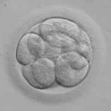|
|
|
|
Ask an Expert |
|
|
|
|
|
|
|
|
 |
|
|
|
| "Reach high, for stars lie hidden in your soul. Dream deep, for every dream precedes the goal." |
-Pamela Vaull Starr |
|
|
|
|
|
|
|
|
|
|
|
|
|
Family Formation Law
|
|
|
|
|
|
Embryo Donation
1. Why is it important to use an attorney during the embryo donation process?
It is very important to use an attorney during the embryo donation process because you must remember that you are dealing with your parental rights, as well as the lives of your children. In fact, it is absolutely necessary to ensure that all of the donating couples’ rights have been waived, as well as issues such as inheritance and future disclosures. Although many assume that the informed consents submitted by your physician will cover all of the legal issues that you may face, they often do not and cannot. My best advice is to seek counsel before you proceed to ensure that the physician’s consents are in order, as well as ensure that you have an agreement in place between yourself and the donating/recipient couple.
2. What does the law say about embryo donation?
[Federal] law states absolutely nothing at this time about embryo donation, yet many states are now considering how to handle these unique family situations... We do have several states that have addressed the issue of embryos in the divorce context whereby the ex-wife or ex-husband wants to use their cryopreserved embryos in order to have a child. In those cases, the courts have ruled that the embryos are marital property and that one side cannot be forced to procreate and become a parent against their will despite any consents signed by the couple while they were married.
3. Are there legal differences between embryo donation and embryo adoption?
Legally, there are no real differences between donation and adoption except in how the agency chooses to handle the arrangement. In the donation arrangement a home study is usually not required, yet in the adoption arrangement a home study is obtained.
4. What are the important parts of an embryo donation contract?
The most important part of an embryo donation contract is the entire contract. Every section is there for a purpose to ensure that ultimately your rights are protected every step of the way.
5. Do clinics often require contracts of their own to protect them? Should I have my own attorney review these documents?
Absolutely, and they are called informed consents. As I stated in Question 1 above, you should always have an attorney review these documents before signing them. You should always do whatever you can to protect yourself and your children.
6. What if my donors change their mind after the procedure and want the baby? What are their rights?
Currently, since there are not any laws, either legislative or case law, we have relied on the premise that embryo donation, as is egg and sperm donation, is the transfer of property. In fact, the cases involving divorced couple and their embryos support this premise. In addition, the courts have consistently stated that an egg donor and/or sperm who have been adequately advised and who have waived their rights knowingly cannot later change their mind; therefore, this should not be an issue at any time soon.
7. Can the contract specify the level of contact we have with the donor?
Absolutely.
8. I am a donor. Can a contract protect me from inherency claims from the future children?
Can it protect me from being asked to assume custody? As I stated in Question 6 above, the waiver of rights, as well as the acceptance of rights, must be reciprocal; therefore, each party should be protected from claims on either side of the donation/adoption with the proper agreement in place.
9. Is embryo brokerage (the buying and selling of embryos) legal? What about reimbursement costs?
Currently, we have no [federal] legal guidance regarding the buying and selling of embryos. In fact, some have tried to compare it to egg donation where the egg donor is compensated for her pain and suffering. Yet, due to the fact that embryos are created from the joining of the egg and sperm and can be implanted to create a child, many of us in this field have determined that embryos should not be bought and sold. Ultimately, this is a gray area [in most states] that will eventually need to be addressed; however, until that is done, I would always advise that embryos not be bought and sold. Reimbursement costs for expenses such as storage fees have always been acceptable.
|
|
|
|
|
|
|
 |
|
|
 |
|
|
|
Nearly 400,000 embryos are stored in the United States,
88.2% are targeted for patient use, and
2.8% are available for research.
FERTILITY AND STERILITY VOL. 79, NO. 5, MAY 2003 |
|
|
|
|
 |
|
|
